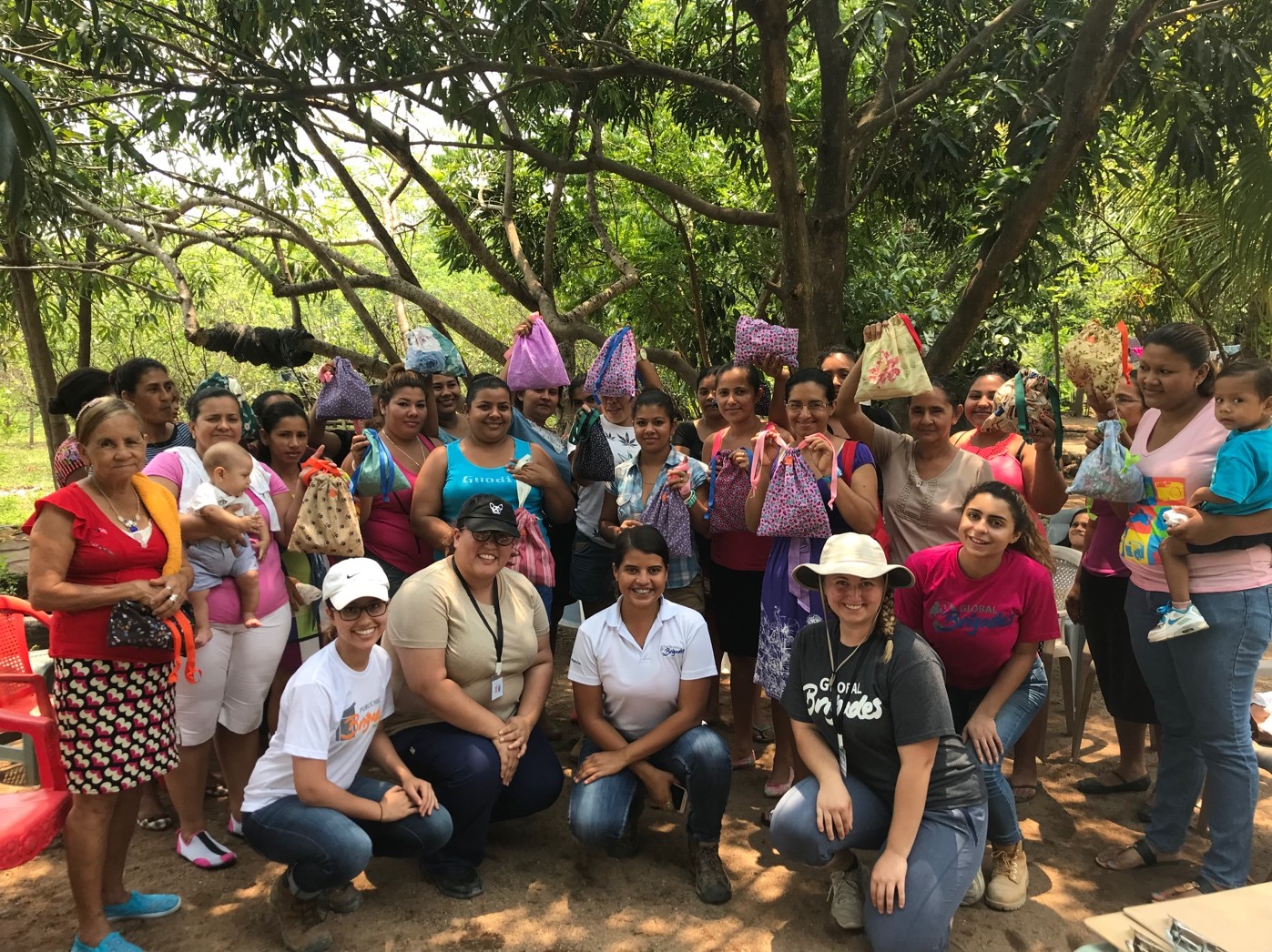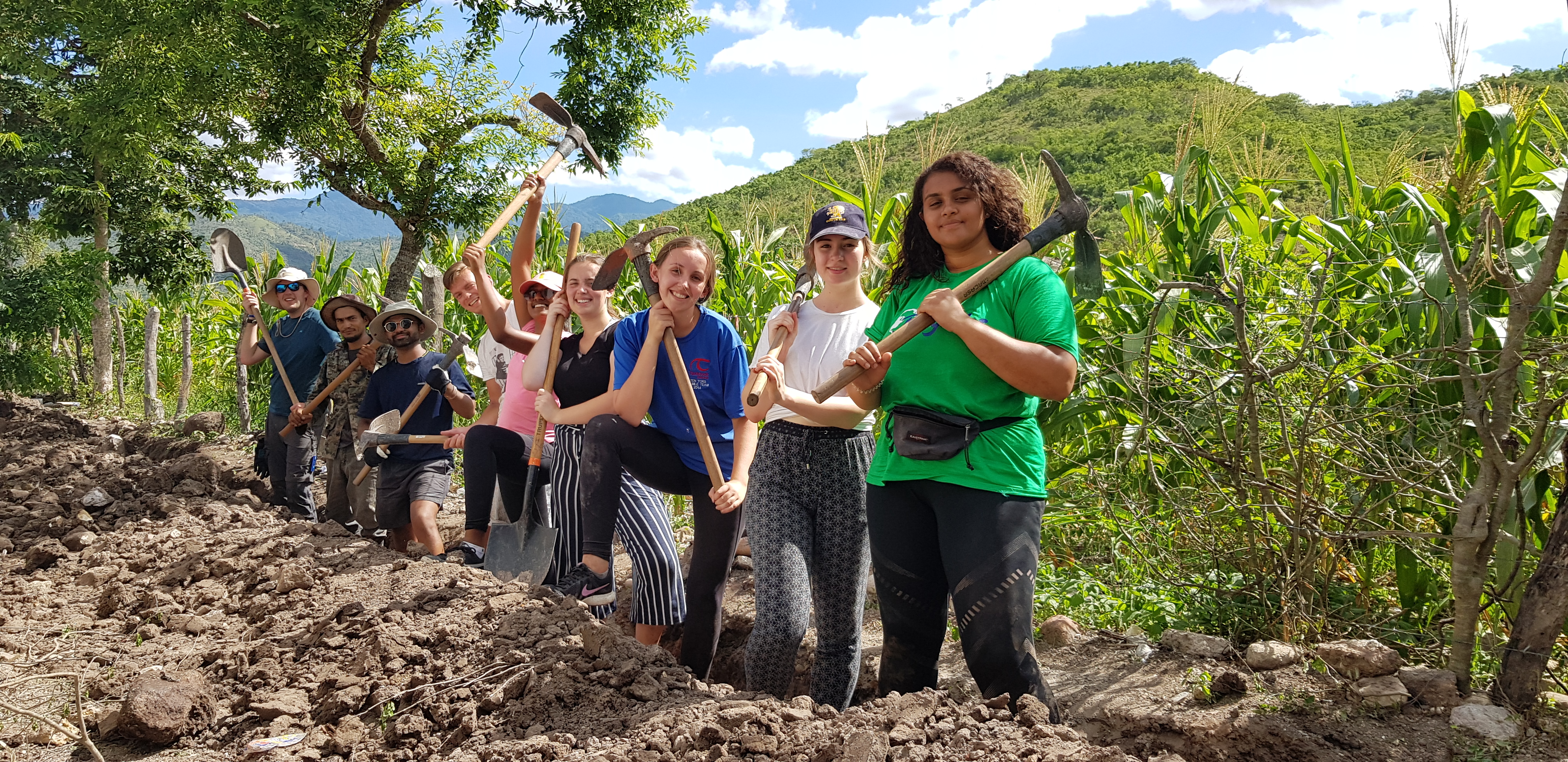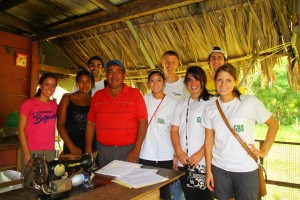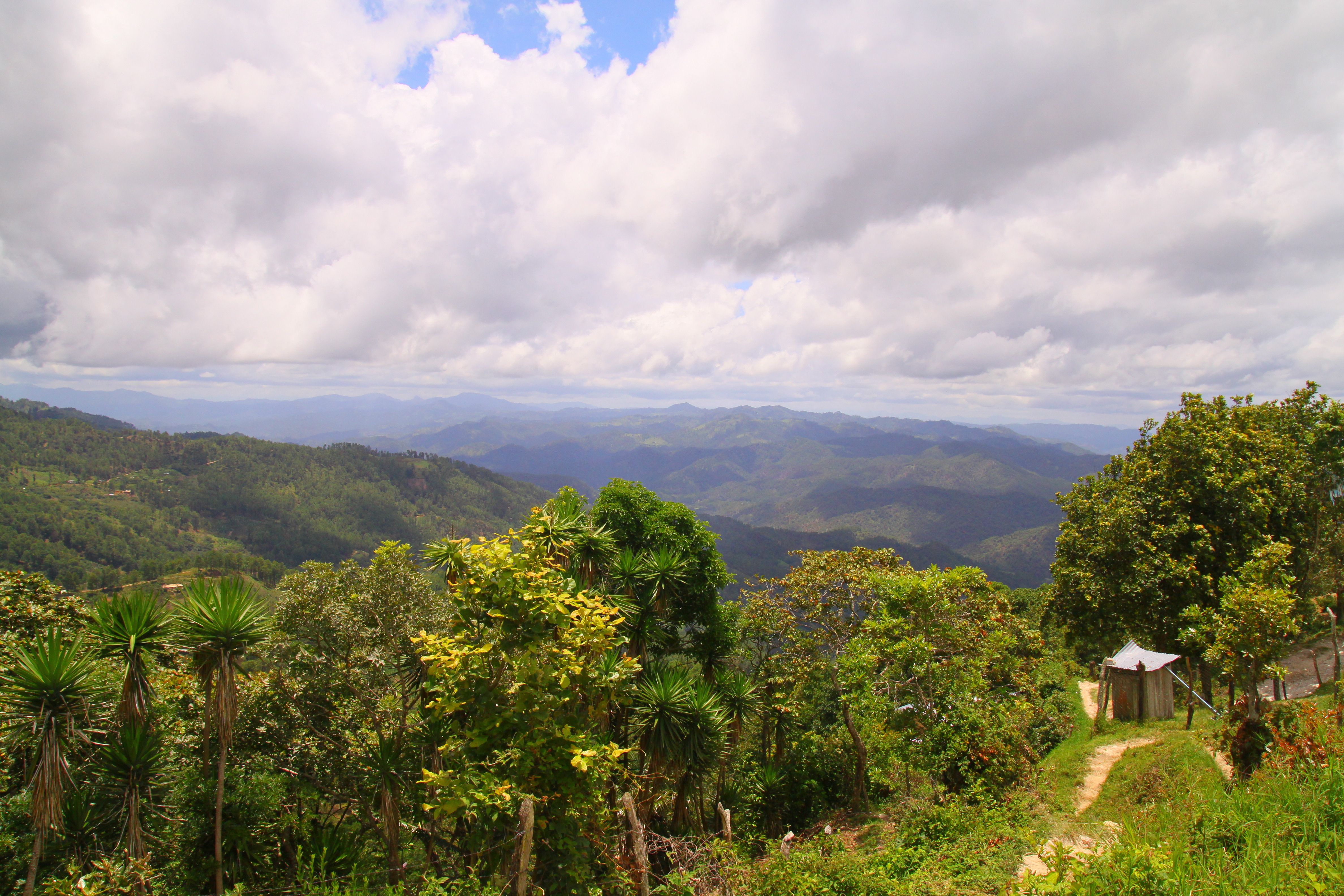Written by Olivia Randall-Kosich, GB Campus Chairperson at the University of Central Florida
Today, May 28th, is Menstrual Hygiene Day – a day to discuss stigma, limited access to menstrual products, and inadequate infrastructure impacting women worldwide. For Global Brigades, it’s also a great day to share our Monitoring & Evaluation (M&E) Team’s efforts to empower women and girls to manage their menstruation safely, hygienically, and with confidence, in our GB communities and beyond.
Taking the Leap into Research
After returning home from my first Medical Brigade in May 2017, I eagerly searched for ways to get further involved in Global Brigades. I received an email from the M&E Team with a GB Research Application, and thought, “it’s a sign!” Although I had absolutely no research experience at the time, I took the leap and submitted the research application to GB.
Thankfully, the M&E Team provided ample guidance throughout the entire process. Through my initial conversations with an M&E Associate, I learned that many women in Global Brigades’ partner communities were in need of menstrual supplies. In response to frequent inquiries from volunteers on the topic, the M&E team looked for support to perform a feasibility study, but lacked the staff and resources necessary to perform a feasibility study. I felt this was the perfect opportunity for me to take ownership of a research project, and I began planning the pilot study to implement in May 2018.
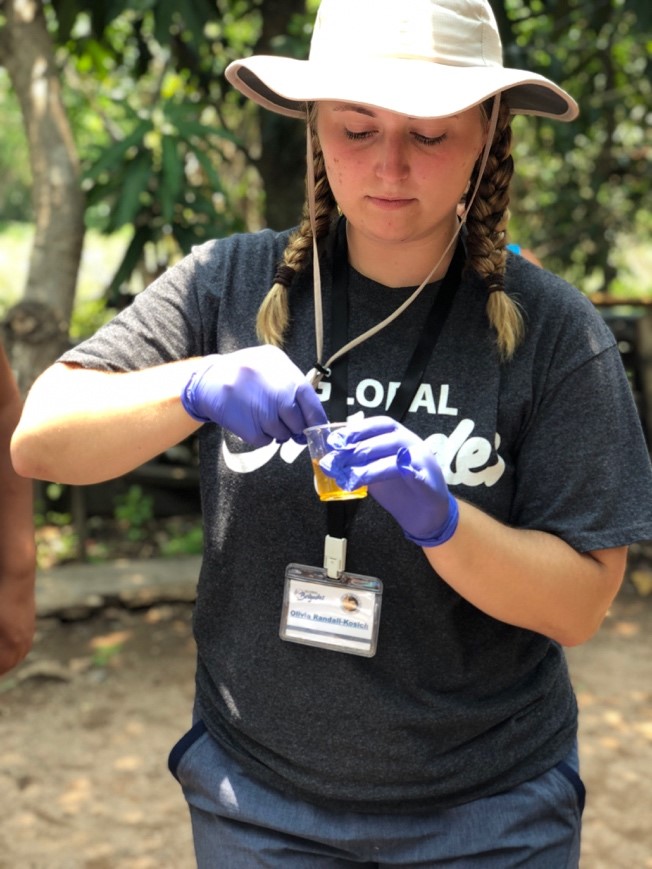
Designing a Research Study
After conducting a literature review on reusable menstrual pad programs, we decided that a combination of surveys, discussion groups, and UTI testing would provide a comprehensive mixed-methods approach. I created surveys that assessed the current need for menstrual supplies and the acceptability of using reusable products. I also developed focus group questions that explored those topics, as well as more nuanced subjects such as sexism and culture.
In-Country Research in Nicaragua
In May 2018, I traveled to Nicaragua on a Public Health Brigade, which is when our pilot study came to fruition. I departed from my brigade for two days, during which I facilitated focus groups, distributed surveys, and performed urinary tract infection tests in the communities we were researching. At the end of the study, we distributed reusable pads with the plan to assess how the women liked the products in four to six months. The women glowed with appreciation when they received their trial products and clearly appreciated that we considered their opinions in finding the solution. Unfortunately, Nicaragua entered a time of political unrest shortly after the trip; project follow-up was postponed, but the research was able to be transitioned to Honduras using similar methodology.
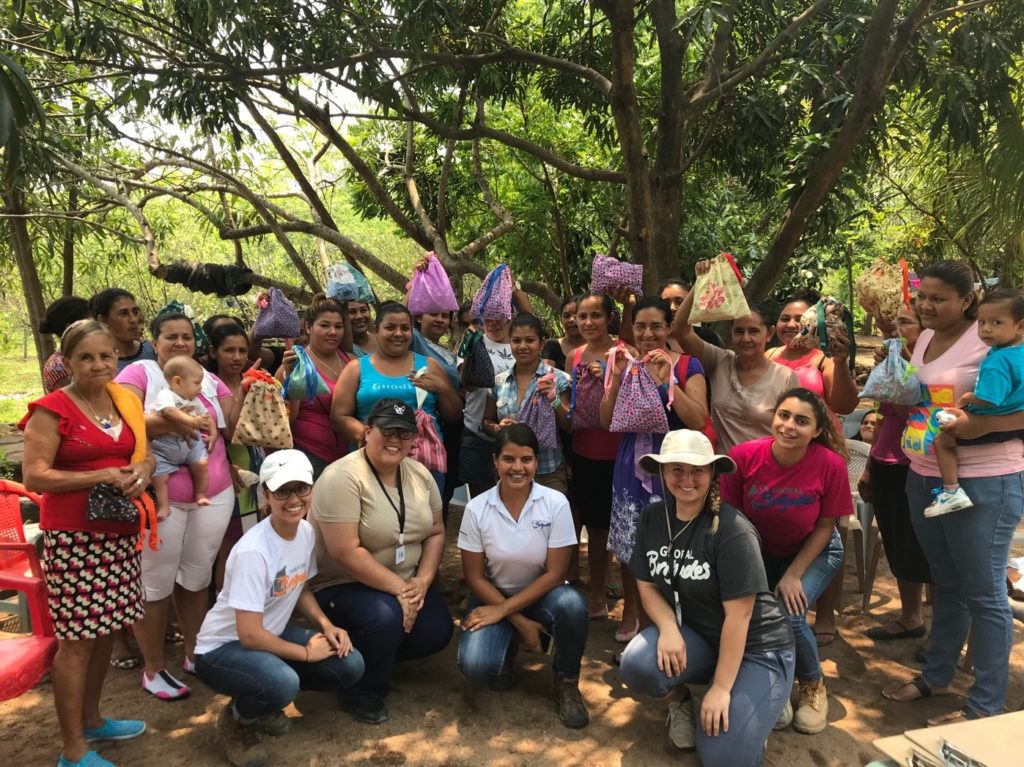
In-Country Research in Honduras
Over the next year, I collaborated with the M&E Team in Honduras via email and virtual meetings. In November 2018, the Honduras Team distributed reusable pads to sixty women in the community of El Zurzular in Honduras. Six months later, I traveled to Honduras, hoping to learn about the women’s experiences with the reusable pad products. Prior to my arrival, the team informed the women of the time and place for project follow-up. In total, thirty-two women filled out follow-up surveys. Results showed that 97% of the women believed reusable pads reduced monthly spending and 100% of the women planned to continue using the reusable pads in the future. After analyzing the results, I shared them with Global Brigades, along with my recommendations, in order to start a conversation of how to potentially grow this project moving forward.
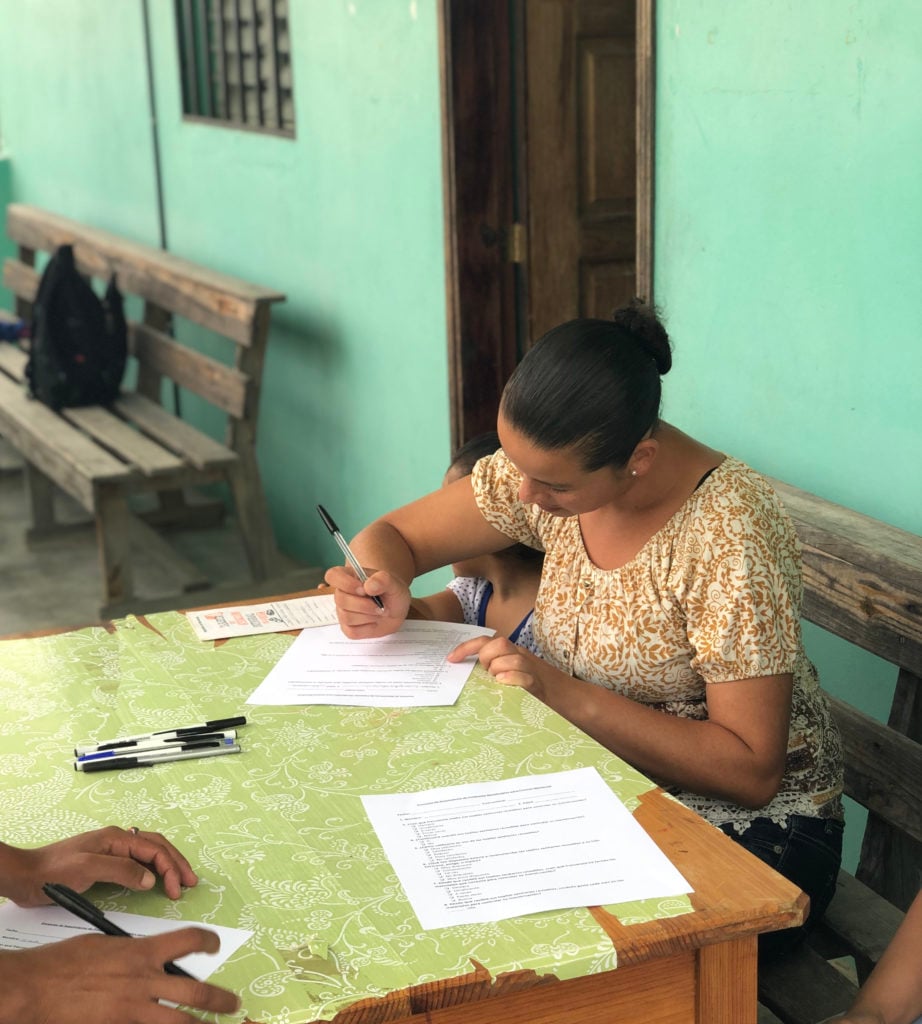
Getting involved with women’s health research on and off brigade helped shape Olivia’s career goals
Women completed follow up surveys six months after receiving the products.
How Research with GB Changed My Life
The research projects in Nicaragua and Honduras were transformational experiences I never could have learned from a textbook. While listening firsthand to women searching for a solution to a basic human need, I fully grasped the extent of the problem. I didn’t want to just put a bandaid on it; I wanted to help in a substantial, sustainable way. At that moment, I realized research provides a quantifiable way to better understand a problem and find a long-term solution.
After my research experience with GB, my career and educational goals shifted dramatically. Instead of jumping into the workforce post-graduation, I decided to pursue a Ph.D. in Public Health in order to continue conducting research to make positive change in the world. To begin your own GB Research experience, learn more here at www.globalbrigades.org/impact/evaluation.

